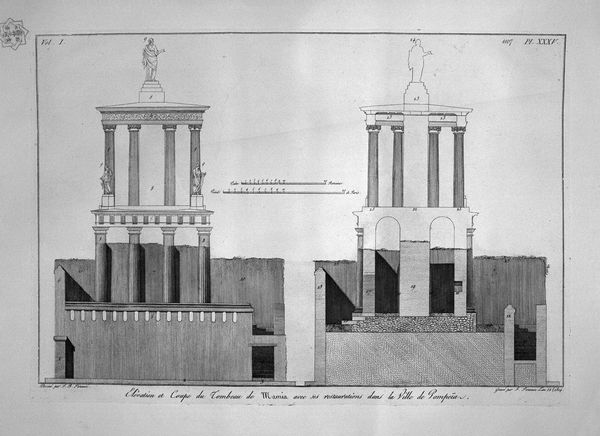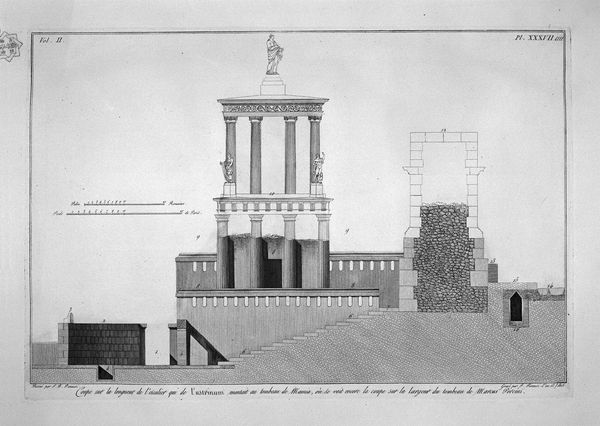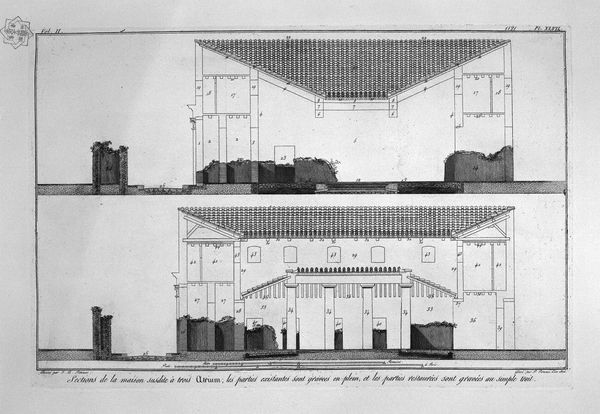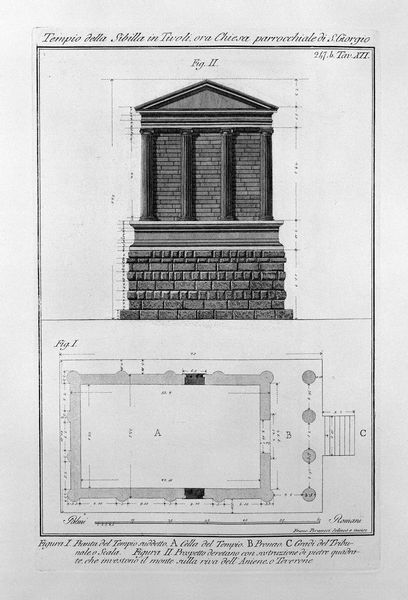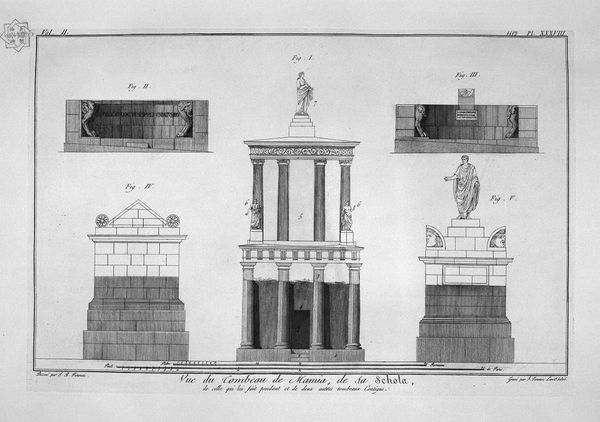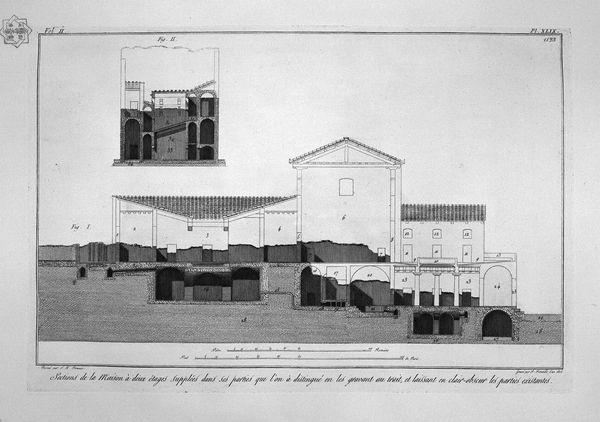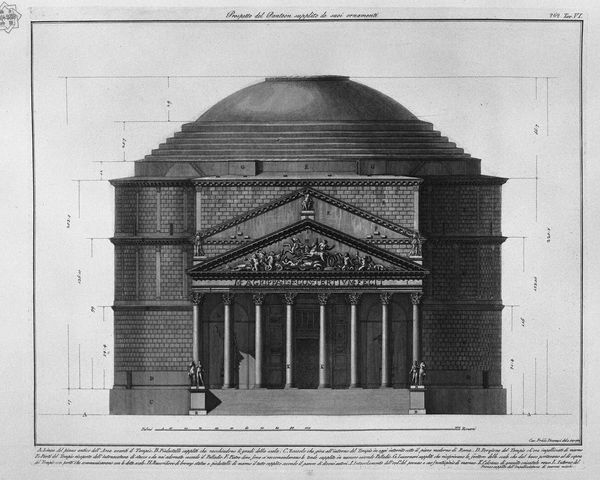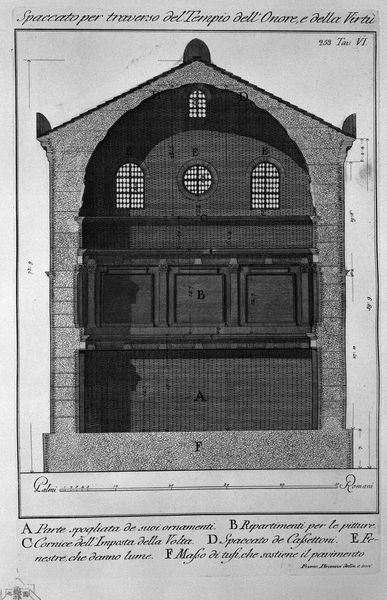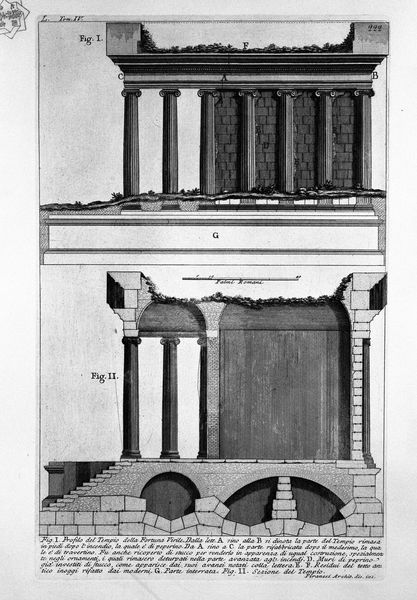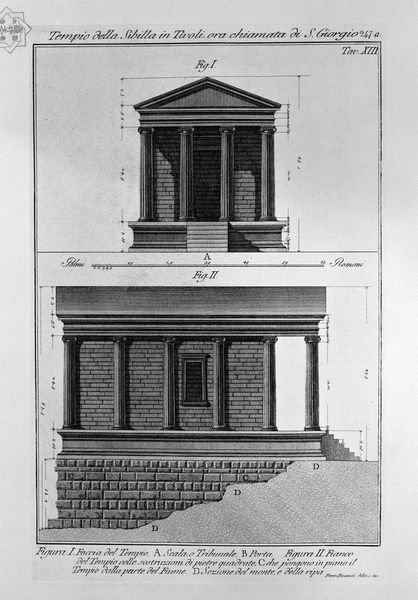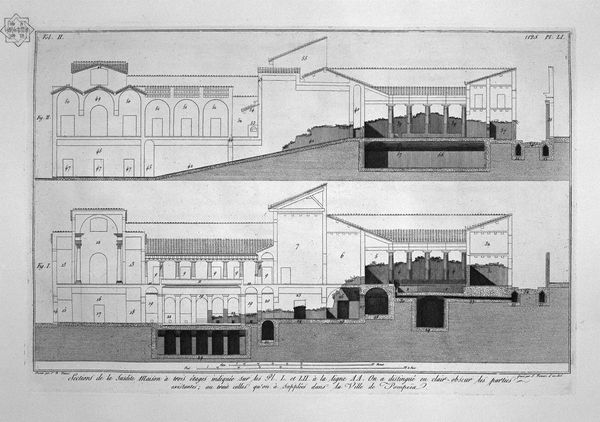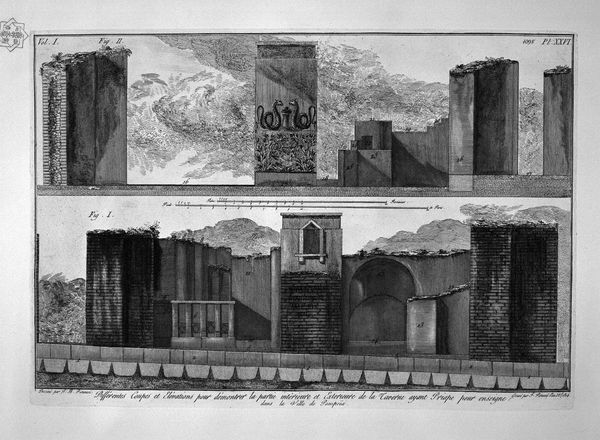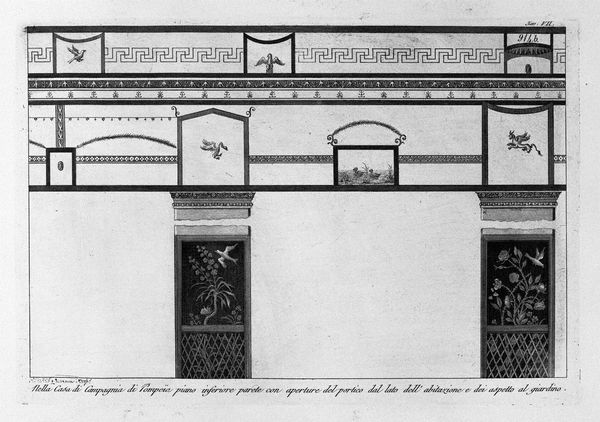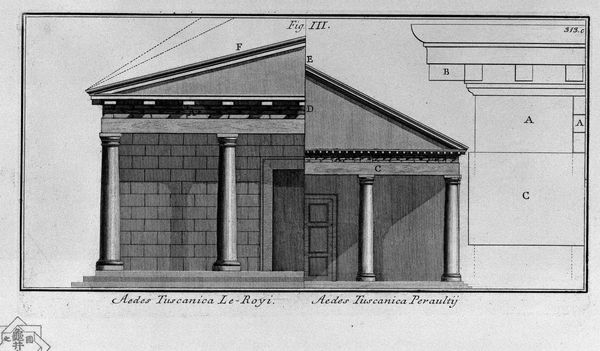
drawing, print, etching, paper, ink, engraving, architecture
#
drawing
# print
#
etching
#
pencil sketch
#
classical-realism
#
perspective
#
paper
#
romanesque
#
ink
#
geometric
#
column
#
architectural section drawing
#
architectural drawing
#
line
#
engraving
#
architecture
Copyright: Public domain
Curator: Here we have Giovanni Battista Piranesi's "Index of the second volume," a detailed architectural rendering executed with ink, etching, and engraving on paper. Editor: My initial impression is of severe monumentality, even if rendered delicately. The stark monochrome, sharp lines and sheer scale convey an imposing, almost dreamlike construction. Curator: Indeed. Piranesi's masterful handling of perspective emphasizes the structure’s size and its implications. This is not simply a depiction of a building, but rather, the representation of power. The volume in which this print appears played a key role in shaping perceptions of Roman architecture during the 18th century. Editor: Yes, the cross-section revealing the interior feels almost theatrical. It reminds me of stage designs from the same period. And notice how he juxtaposes meticulous detailing with areas left intentionally ambiguous—the textured facade against the smooth surfaces, creating a contrast in the perceived tactile nature. Curator: Absolutely. He aimed to evoke not just visual understanding, but also to inspire awe. Piranesi sold these prints widely to wealthy tourists. Consider that it fuelled an entire industry of souvenirs and shaped a lasting view of Roman grandeur, quite divorced from the often squalid reality of Rome at the time. The imagery held far more political force than accurate plans of the mausoleum itself might have. Editor: Looking at it this way, the image itself becomes part of the monument’s enduring legacy. Curator: Precisely! Piranesi, the engraver and entrepreneur, managed to weave Roman imagery and his own artistic ambition together in an extraordinary feat of early image distribution. Editor: Well, looking beyond the historical implications and just concentrating on the artwork's arrangement, I'd argue this print transcends documentation and assumes an autonomous artistic standing thanks to the rigorous application of depth and tonal qualities, resulting in something extraordinary, but not necessarily Roman in flavor. Curator: It's always amazing to realize how much one can extract from a simple architectural drawing when carefully dissected. Editor: It truly is, offering a new point of view.
Comments
No comments
Be the first to comment and join the conversation on the ultimate creative platform.
